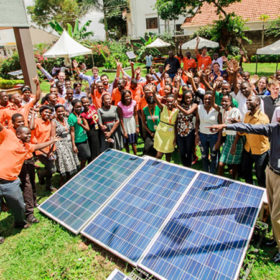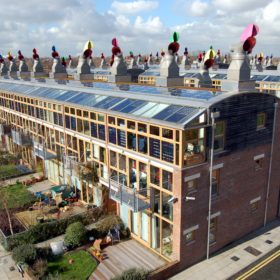Shell Foundation and Rockefeller support $11bn African mini-grids fund
Crossboundary Energy Access – which claims to be the continent’s first mini-grid financing facility – wants to unlock $11 billion in private capital to bring energy to 100 million people in sub-Saharan Africa. Raising capital has been a struggle despite mini-grids being lauded as a solid solution for electrification.
Turkey added 2,416 MW of solar capacity in 2018… kind of
Turkey appears to have installed a staggering 2,416 MW of new PV capacity in 2018, although careful study of the data may curb any excitement and solar’s role in the Turkish electricity mix remains negligible, with coal still dominant.
African Development Bank’s $25 million for sub-Saharan renewables
The investment will be made into a larger equity fund which seeks to develop 533 MW in the market, which currently has the lowest rate of access to electricity in the world. Even small capacity additions can bring economic impacts to many people.
UK council to deploy solar-plus-storage on landfill to generate income
With budgets continuing to be slashed, one authority is eyeing solar-plus-storage to boost revenue. It is not the first time a U.K. council has decided to turn a landfill site into an income generating asset.
‘No alternative to 100% renewables’
Transition to a world run entirely on clean energy – together with the implementation of natural climate solutions – is the only way to halt climate change and keep the global temperature rise below 1.5°C, according to another significant study.
Middle East solar pioneers have their efforts recognized
DEWA projects featured strongly in this year’s accolades but there was also recognition for projects beyond the region and some eye-catching innovations.
Solar investment slid on the back of cheaper modules and China setback
The world again saw more than $300 billion of clean energy investment in 2018, according to BloombergNEF, and although wind narrowed the gap on solar, plunging module prices skewed the figures as PV capacity additions rose 10 GW.
SolarNow to bring off-grid PV to 17,500 more Ugandan homes
The domestic company has cleared a third debt funding facility of $9 million with Kenya-based SunFunder, responsAbility and Oikocredit. The credit means 2.5 MW of off-grid capacity, enough to bring energy to 70.000 people.
Solar stars at new-look Zayed Sustainability Awards
A Californian company which provides PV power to maternity clinics in the developing world was an award winner alongside British pay-as-you-go electricity provider BBOXX. And a school in Tajikistan which aims to go fully solar powered secured a cool $100,000 towards that ambition.
EU issues £1.9 million grant to Britain for PV and energy efficiency
The UK cities of Bristol and Plymouth and the county of Devon will get £1.9 million to develop energy efficiency, sustainability, and clean energy projects. Bristol in 2014 received a £50 million grant to accelerate its plans to be carbon neutral by 2050. Devon has ambitious plans of becoming 80% carbon neutral by the same date.









